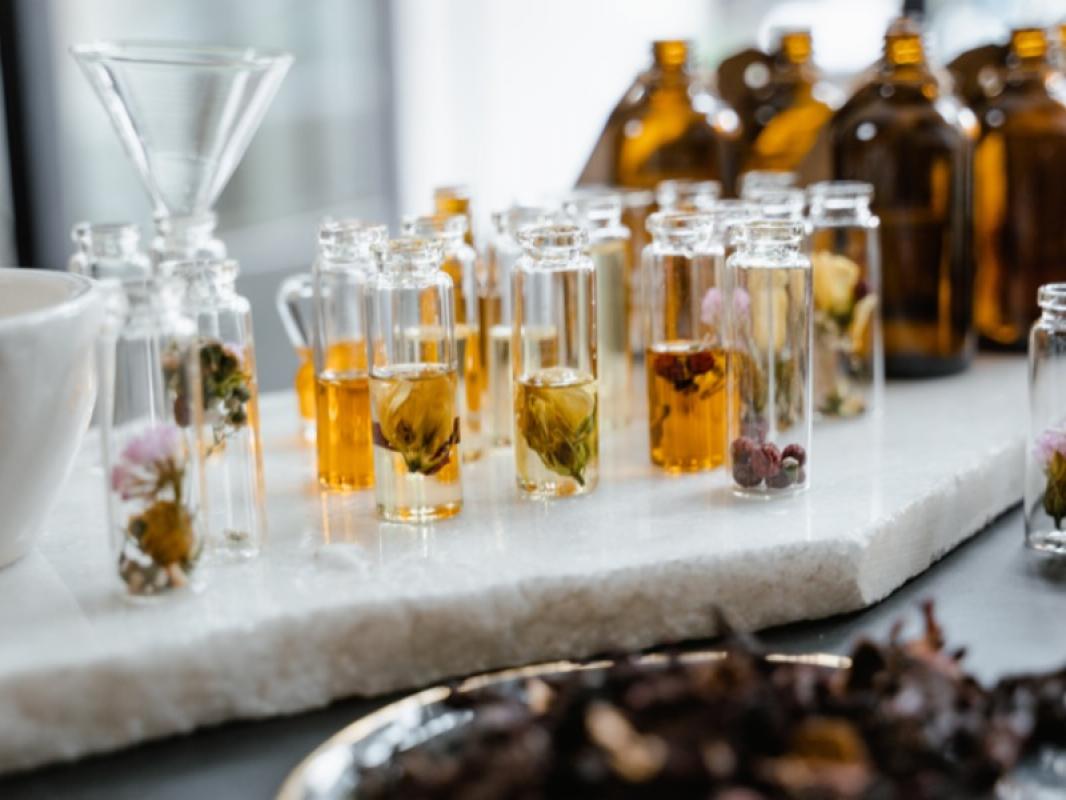The pandemic years seem to witness significant development in the perfume industry in Indonesia, the largest economy in Southeast Asia. The fragrance industry in this country has been forecast to continue to grow in the coming years, with only a small dip in revenue experienced during the pandemic year of 2020.1 At the same time, local brands of perfume have been rising instead and becoming more popular, as exhibited by the increase in transactions, which almost doubled in September 2020 compared to the previous year.2
Supported by the government through a program called Gernas BBI (Gerakan Nasional Bangga Buatan Indonesia, the Movement of National Pride for Indonesian-Made Products), small and medium enterprises have taken off, along with the ubiquitous e-commerce and marketplace. The local perfume industry has been riding this wave of digital economic activities, taking advantage of the varied sale channels, while consumers have been nothing but enthusiastic, with communities of avid fragrance lovers burgeoning in big cities on the island of Java and beyond.
The local brand Crusita is one of the newcomers in the industry, founded only in 2020. Recording a remarkable 30-40% per month growth in early 2023, it emphasizes its presence in the largest marketplaces such as Shopee and Tokopedia, and also social media such as Instagram and TikTok. Working to raise its own bar of standard, Crusita looks to release a premium product this year, with the support of international perfumers.3
HMNS is another popular brand that was founded in 2019 and has found its special place among consumers, ranking as the only Indonesian brand among the biggest five on Shopee and Tokopedia in 2021.4 Endorsed by Indonesian high-rank public officials, such as the Minister of SOE Erick Thohir and former Ministry of Tourism Wishnutama,5 the brand appears to be a domestic pride that boasts excellence in quality.
Other brands aren’t that far behind. Carl & Claire, also founded in 2019, took advantage of Shopee’s program, such as promotion campaigns on special days and affiliates, to boost its growth and broaden its outreach. With followers now more than 70,000 on Instagram and 20,000 on TikTok, it also uses its website to showcase and sell its collections that cater specially to Indonesians craving freshness living in a highly humid region. Meanwhile, others such as Summerscent, Laux, Euodia, The Living Potion by KIEV, and many more, have also joined the scene to offer quality products for the many segments of society. To stand out in the competition, new brands can even get very creative, releasing products under a certain marketing narrative, such as Horror Series (Atariksa) which draws from horror tales and legends of the archipelago and Regal-Mystical Collection (Mykonos) which tries to evoke the scent of charm, mystery, and effortless beauty.
This recent boom in local brands has been widely attributed to the rise of the digital economy and new developments in packaging technology. All the brands mentioned above offer small portions of perfume to consumers, drawing on the common knowledge that consumers are always interested in fragrances but many of them are unable to afford international, luxury brands of perfume. With small portions easily accessed for a trial, consumers are benefitted from the low cost of it, allowing them to try as many as they please and explore more types of scents.
The year 2020 was a momentum indeed when marketplaces made the most of the situation and boosted sales due to lockdowns and social restrictions. Combined with the readiness of local players in the perfume industry, the flourishing result can be seen today. However, the perfume industry in fact hasn’t been thoroughly integrated with the local essential oil industry, where the few local players export their products instead of fulfilling the domestic needs.6 If this gap can be overcome, the various actors in the value chain of national perfumery can benefit many ways.
With consumers nowadays being ever more comfortable in expressing their individual desires, perfume as part of their lifestyle is an undeniable need. In Indonesia, a highly humid region year-round, they resort to fragrance in order to acquire a sense of freshness every day. The journey of the new domestic perfume industry has only begun, and it would be interesting to see it expand to neighboring countries in the near future.


